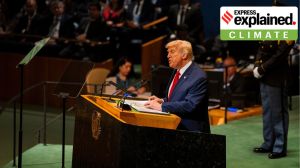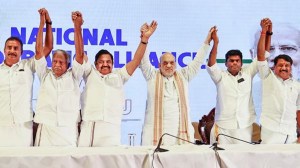CAA Bill proposes Rs 5 per ticket charge
Govt plans to introduce surcharge of Rs 5 per flight ticket to fund Civil Aviation Authority.
The government is planning to introduce a surcharge of Rs 5 per flight ticket to fund the Civil Aviation Authority CAA the proposed aviation regulator that will replace the Directorate General of Civil Aviation DGCA.
This proposal is a part of the CAA Bill that has been sent for various ministries for inter-ministerial consultations and the government plans to table it in the next session of Parliament.
We estimate that the new regulator will have annual earnings of around Rs 140 crore,which will be enough for making them financially independent. A major part of the earnings will come from fee charged for giving out licences. A substantial sum will also come from charging from passengers, said a senior ministry official.
The earlier plan was to charge Rs 14 per ticket to fund the proposed regulator.
The official further explained that the 1 per cent of the revenues earned by the air navigation services,currently done by Airports Authority of India,will also be shared by the new authority.
Fee for licensing air traffic control services at the airports are quite low and have not been increased since 2006. We have proposed that it should be increased helping the authority in earning more revenues, the official said.
The authority will also have the autonomy to hire its employees and decide the emoluments of its employees. Currently,appointments at the DGCA are approved by the Union Public Service Commission UPSC,which is a time-consuming process.
The DGCA had identified around 400 vacancies to be filled in the current setup around two years ago but will be able to fill only 180 of them due to the time taking procedure of recruitment by the service commission.
A DGCA official explained that there are a lot of limitations in filling vacancies in the aviation regulator.
We need to hire a lot of senior pilots for the flight standard directorate but none of the senior pilots will come and join us because of the salaries we offer. But this will change when CAA comes and have the autonomy to hire people at market-determined salaries, he explained.
Unlike the DGCA where the director general DG is supreme and supported by joint and deputy DGs,CAA is proposed to have a chairman supported by a board with members on it.
The chairman of CAA will have a fixed term of five years and a person with requisite aviation experience can head the authority. An Indian Administrative Services officer with requisite aviation experience will also be eligible for the post, the ministry official said.
Replacing DGCA
The CAA Bill,which the government plans to table in the next session of Parliament,proposes to replace DGCA by Civil Aviation Authority
A major part of CAA earnings will come from fee charged for giving out licences. A substantial sum will also come from charging passengers
The authority will also have the autonomy to hire employees and decide the emoluments of its employees
- 01
- 02
- 03
- 04
- 05































